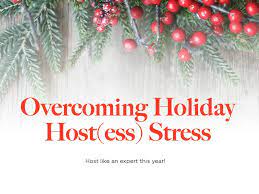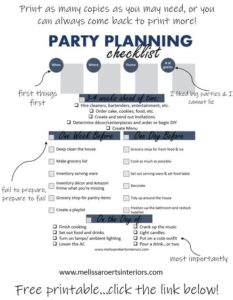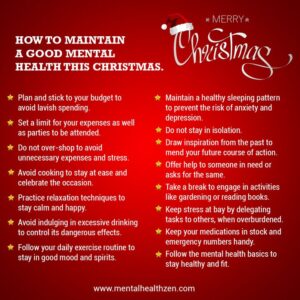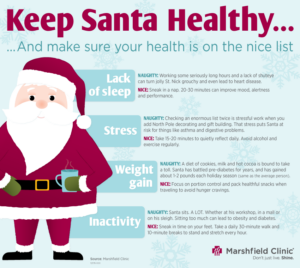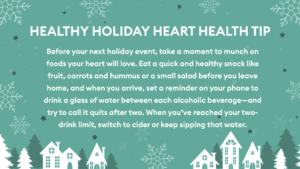

1 – Let’s start with the obvious. Dive into a book.
Picking up a book (whether it’s a Christmas story, one of the seven reads that help Oprah through tough times, or a gripping thriller), can help you escape into an entirely different reality, and one that you don’t usually have time to explore. Didn’t plan ahead? Download a reading app (psst, Harlequin relaunched a great one for steamy reads) and try out a buzzy best-seller, indulge in a juicy romance novel, or make your way through some of Oprah’s Book Club picks. (We also hear these podcasts have some pretty good suggestions, too.)
2 – Be your own version of jolly old Saint Nicholas.
Spread some cheer this holiday season—with a few small acts of kindness. Whether you have a few bucks or a hundred-dollar bill, consider giving to one these hardworking organizations:
- First Book is a nonprofit that provides new books and learning materials to children in need, while Reach Out and Read works with a network of nurses and doctors to distribute books to children living in low-income homes at their regular checkups.
- Achilles International has paired over 150,000 disabled athletes with able-bodied athletes to help them be more active and participate in mainstream sports.
- Feeding America is the nation’s largest domestic hunger-relief organization, which is comprised of more than 200 food banks around the country and feeds more than 46 million people each year.
- Toys for Tots, a program run by the United States Marine Corps, distributes holiday toys to children whose parents cannot afford to buy them.
- Covenant House is an organization that provides housing and resources to homeless youth in 30 cities across the United States.
- The USPS’s annual Operation Santa program, which is going digital for the first time, allows people to fulfill wish lists from kids in need that are addressed to Santa.
On a tight budget? Try volunteering instead. While many in-person volunteer opportunities are out of the question due to the ongoing coronavirus pandemic, there are plenty of virtual volunteer opportunities: Volunteers for Hire Heroes USA help veterans and military spouses excel in their careers by conducting mock interviews and offering general career advice; Tarjimly is a nonprofit with a free app that connects refugees, immigrants, and asylum seekers with multilingual volunteers via video chat; Be My Eyes is a free app that connects visually impaired people who need assistance with everyday tasks (think: reading an expiration date) with sighted volunteers through live video chat; and StoriiTime is a free service that connects children with seniors for a virtual story hour.
“Sharing stories will help you realize you aren’t alone and there is always someone we can find connection with. It just might be in the least expected ways,” says Eryn Eddy Erickson, a speaker specializing in topics of self-care and creativity. Hey, you never know…the gift of your company may be that person’s Christmas miracle.
3 – Binge all those shows you’ve had no time for.
Haven’t caught up on The Bachelorette? Not enough vacation days to watch Emma Corrin in The Crown or escape to Schitt’s Creek? Surround yourselves with friends, even if they are on your television. There’s a definite comfort in allowing yourself to just put on some fuzzy socks and commit to not changing out of your flannel pajamas all day.
4 – Sweat a little.
While your gym might not be open and it could be too cold for a run, consider starting your morning by streaming a workout video or yoga class. After all, as you’ve heard before, exercise increases endorphins, which will help you start your day with your mood already elevated.
5 – Visit a nearby church, if that’s your thing.
“Instead of being cooped up in your home watching reruns of others enjoying the holiday, why not take a trip to a local church,” suggests Ireland. “Spiritual moments have a way of taking your mind off of your needs and centering you on your many blessings,” he says. (Due to the ongoing coronavirus pandemic, many churches have shifted to virtual services and events, so be sure to check with your local church to see what they’re offering on Christmas Day.)
6 – Reminisce or create new memories.
Enjoying the holidays is partially about reliving memories, even if you can’t be with the people you made them with, explains Dr. Jeremy Nobel, founder and president of the Foundation for Art and Healing, whose signature initiative is the UnLonely Project, which addresses the health challenges of loneliness and social isolation.
Nobel recommends compiling old holiday photos into a collage (you can do so digitally on sites like Shutterfly, or whip out those scissors). Or, try writing in your journal about your memories. Another strategy is going for a walk and taking new pictures that bring back the feelings of those cherished moments, like that of a local park where sledding happened. Sharing those pieces of art with friends and family–even when they are not present physically–can allow you all to feel connected, says Nobel, who is also a professor at Harvard Medical School and Harvard School of Public Health.
“If you’re spending Christmas alone, it can be tempting to pull the covers over your head, isolate, or even go on a bender, but maybe it’s better to consider making a memory that gives you joy in the midst of what may be a painful day,” says Ashley Abercrombie, author of Rise of the Truth Teller.
7 – Soak in some self-care.
According to Pinterest, the platform has recorded a 44% increase in searches for meditation, a 60% increase in searches for gratitude, and a 42% increase in searches for positivity just in 2020–meaning that while you might be physically alone, there are tons of people who also need some self-care this holiday season. To turn your home into a spa, treat yourself to an at-home facial and whip up a bunch of DIY treatments, like a sugar lip scrub, a hydrating face mask, and a repairing hair mask. (More of a DIY disaster than master? Check out our list of the best pampering gifts and the best self-care subscription boxes.)
8 – Listen to a joyful playlist, without the carols.
Have you heard? Music is a scientifically-proven way to boost your mood, thanks to the release of neurotransmitters like dopamine (which regulates pleasure) and serotonins (which contributes to wellbeing and happiness). So, try creating your own soundtrack “for a festive me-day” or rock out to this happy songs playlist. (Pro tip: Try Stack your songs days in advance so when the morning comes all you have to do is press “play.”)
9 – Try a well-being activity
Despite the twinkling lights and endless eggnog, holiday cheer isn’t always guaranteed—which is why you might want to have some mood-boosting activities on hand. Maybe that’s knitting a cozy blanket, working on a challenging jigsaw puzzle, or coloring, which is a known stress buster. (These are some of our favorite coloring books for adults.) You could also look on the Pinterest app, which offers a variety of emotional well-being activities. Simply search for #pinterestwellbeing to jump into exercises for feeling gratitude and self-compassion, along with other interactive practices that could help you lift your spirits.
10 – Change your mental narrative.
“Loneliness is a liar. Acknowledging that you are alone for the holidays in no way indicates that no one cares about you or that you will forever be alone,” says Erickson.“There are people in this world that want your time and attention,” she says. Erickson suggests those alone on Christmas combat negative self-created narratives with truth and opportunity. Here’s the truth: You’re alone on Christmas and that’s okay.
Next, give some thought to the choices or situations which led to spending the holidays alone. “If it’s a decision that you understand or agree with, you can find comfort in the reasoning behind it,” says Nwoke.
“If it’s a situation or decision you’re not happy with, reflect on this and how you’d like to approach it differently. Either way, you have the power to choose how you want things to be moving forward.”
11 – Play an online game.
Using technology to connect with others can give us the illusion we are with someone else psychologically, even if we are physically apart, says Donghee Yvette Wohn, New Jersey Institute of Technology (NJIT) assistant professor of information systems. This feeling can be generated without even looking at the other person, like playing an online game with someone else. Think: Animal Crossing, Mario Kart, or even something simple, like Words with Friends.
12 – Could always help at as a Volunteer to help out organizations in your community. Help feed the homeless on the holiday as a example, get involved and occupy your time. Before you know it you will enjoy what your doing or the time is up to go home and you will feel better inside that you used your time selfishly and wisely. If you decided to stay home and rest the day than there is nothing wrong with that either. Just enjoy your day alone or not; its is based on your preference.
No matter what you do, volunteering is a selfless act that will help transform the lives of many people over the holiday season. If you’re in the US, you can search for volunteering opportunities on the Corporation for National and Community Service’s website, and in the UK you can search on sites like Do-It.org
The holidays can be tough. For every Brady Bunch-type family who began making elaborate plans exactly five months ago as Coronavirus pandemic restrictions eased, there’s many more who find the whole thing extremely overwhelming.
If you’ve just suffered a loss, for example, or if you’re unable to be around family – being alone for Christmas can be a pretty tough time. Others might have work obligations, family disputes or simply a lack of funds to hop on a flight home.
If this sounds like you, the most important thing to remember is that you should be patient and gentle with yourself. If you’re feeling low or not in the mood to celebrate, that’s absolutely fine. Just because it’s Christmas, doesn’t mean everything in your life has to be wrapped up in a tightly knotted bow and sparkling under candlelight.
And most importantly, have a happy, healthy festive holiday!
